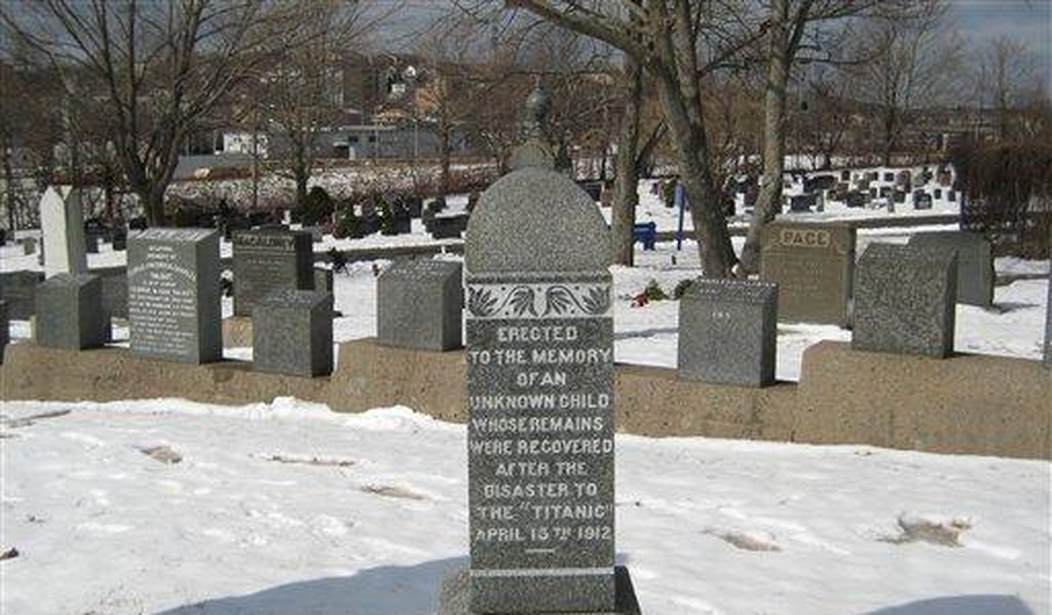Aside from the occasional runs across the bridge in college to Windsor to sneak back cases of real Canada Labatt beer, my experience with our neighbor to the north has been very limited. But I have watched with everyone else as Justin Trudeau and his government have indulged in a veritable orgy of progressive policies that seem to be designed to turn Canada into a horrible hybrid of Airstrip One and the city in "Logan's Run."
One of those policies has been the implementation of euthanasia. This particular bit of nastiness has been chronicled elsewhere on these and other pages, but it bears revisiting if for no other reason other than to remind ourselves just how close we are to the dystopian abyss that is thinly disguised as a utopian horizon.
The Publica has the story of 67-year-old Canadian resident Samia Saikal. Saikal recently opted for assisted suicide through the country's Medical Assistance in Dying or MAID program. She had developed an aggressive form of gastric cancer and was diagnosed in December of last year. It took ten weeks for this grandmother to be referred to an oncologist. She was told that without treatment, she would live between three to six months. With chemo, she might last a year.
After trying chemo, Saikal opted for the MAID program. Saikal's daughter says the situation highlights the problems with access to healthcare in Canada. She told Chek News, "It should not have taken that long because that was the difference, especially an aggressive cancer. Between my mom being strong enough to handle and withstand treatment to give her a fair shot at more months to live, versus not.”
Fifty-two-year-old British Columbia resident Dan Quayle was diagnosed with Stage-4 esophageal cancer. He required chemotherapy to prolong his life. According to Rebel News, his wife begged the hospital not to send her husband home, and Quayle was transferred from Victoria General to the Royal Jubilee Cancer Center in September.
He waited 10 weeks for chemo treatments that never came before dying. He also chose medically assisted suicide because of the pain. Rebel News reports that there are ridiculously long wait times for chemotherapy in Canada, but while the country is trying to address the problem, nothing can be done to help Quayle.
Allison Ducluzeau was a bit more fortunate. She was able to seek treatment in the United States for abdominal cancer. The British Columbia woman told Global News that upon discovery of her cancer, she was offered the option of the MAID program. She was asked what she would say to the Minister of Health if given the chance. Her reply?
There’s a lot of promises I’m hearing. But, you know, we need boots-on-the-ground action right now. What can you do to shorten these wait times? How can you prioritize cases so that people with aggressive stage four cancer get seen by someone and when they do get seen, they get offered treatment and not MAID like I was the first time?
One of the most frightening aspects of MAID is that it might not be a deep, dark population control effort by the uber-rich or some secret cabal. It may be a matter of expediency. It might just be easier and less expensive to refer someone to the MAID program instead of treating them.
Also from the Publica article comes the report of a woman who was being treated for suicidal ideations. Her clinician brought up this idea because the Canadian health system is "broken," and the wait times to see a psychiatrist were very long. That recommendation is in keeping with the expansion of the MAID program in 2024 to include people with depression and those suffering from anorexia. The outlet noted that people are beginning to think that the MAID program is being used to compensate for an inefficient medical system.
There are medical conditions in which a peaceful death is preferable to a futile and painful struggle to stay alive. When I was a hospital chaplain intern, I saw this scenario several times. But there is a difference between someone choosing to die versus the state choosing for them. And if depression and anorexia are about to be added to the list of MAID criteria, the people of Canada should be asking themselves just who the government thinks is fit to live.










Join the conversation as a VIP Member